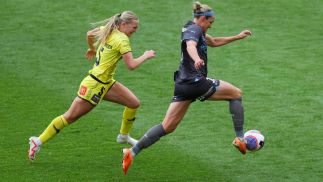Rylee Foster’s physical recovery from a car crash that should have killed her is one thing; the mental struggle quite another. The Wellington Phoenix goalkeeper tells her extraordinary story to aleagues.com.au.
The great irony is that Rylee Foster’s dad never wanted her to play football for fear of her getting injured. In the end, it’s football that arguably has saved her life.
Almost two years to the day since Foster suffered catastrophic injuries in a car crash on a freezing night in Finland, the 25-year-old is somehow in contention to make her debut for Wellington Phoenix on Sunday afternoon, in what would be her first competitive game since being thrown some 30m from a car as it spun and jack-knifed on an icy road.
It’s not so much that Foster was told she would never play again, though she emphatically was told that. She knows with devastating clarity, because numerous doctors have told her, that by any odds she should have died or been paralysed.
Not just once, when the seatbelt broke and she flew through a windscreen, across the freeway and into a field, but again and again in the days after she was discharged from hospital in Finland without knowing that her neck was riddled with fractures like crazy paving.
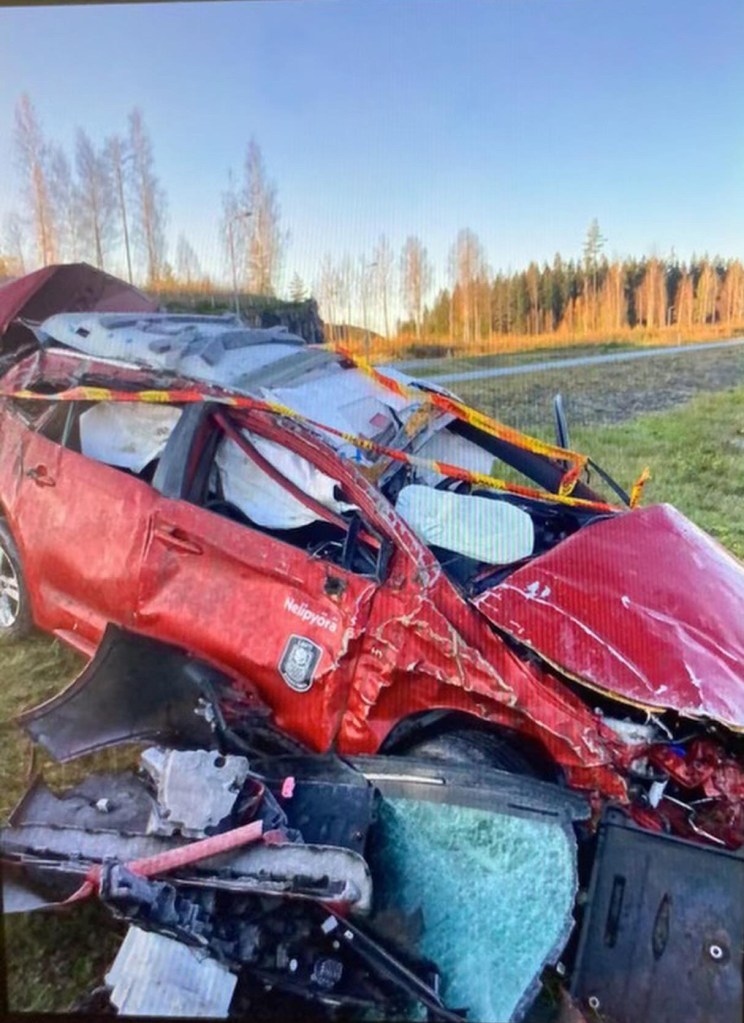
On a spring morning in Terrigal on the NSW Central Coast, where Phoenix are in camp ahead of the new season, Foster’s telling of her life story is remarkable enough even before she gets to the crash that led to a surgeon drilling into her head under local anesthetic in a desperate attempt to prevent any damage to a spinal cord left dangling between broken bones.
The one constant theme is the determination obvious in the 12-year-old Rylee Foster who set herself goals of playing for Canada, for Liverpool and at an Olympics, the same determination which as an adult drove her through the literal agonies of two years of rehab and recovery after the crash.
There’s unfathomable bravery too; in physical terms, for instance, to fly unaided from Helsinki to Liverpool while her cousin braced her to the seat to try to dampen the pain of seven fractures in her neck and spine. But mental bravery too, to deal with the flashbacks and the depression, and to cope with a mind that constantly questions how and why she survived such a trauma.
Remarkably, this is a story that Foster wants to tell because that means she is in charge of the narrative, and can emphasise to herself and to others that it is a story with many more chapters to come.
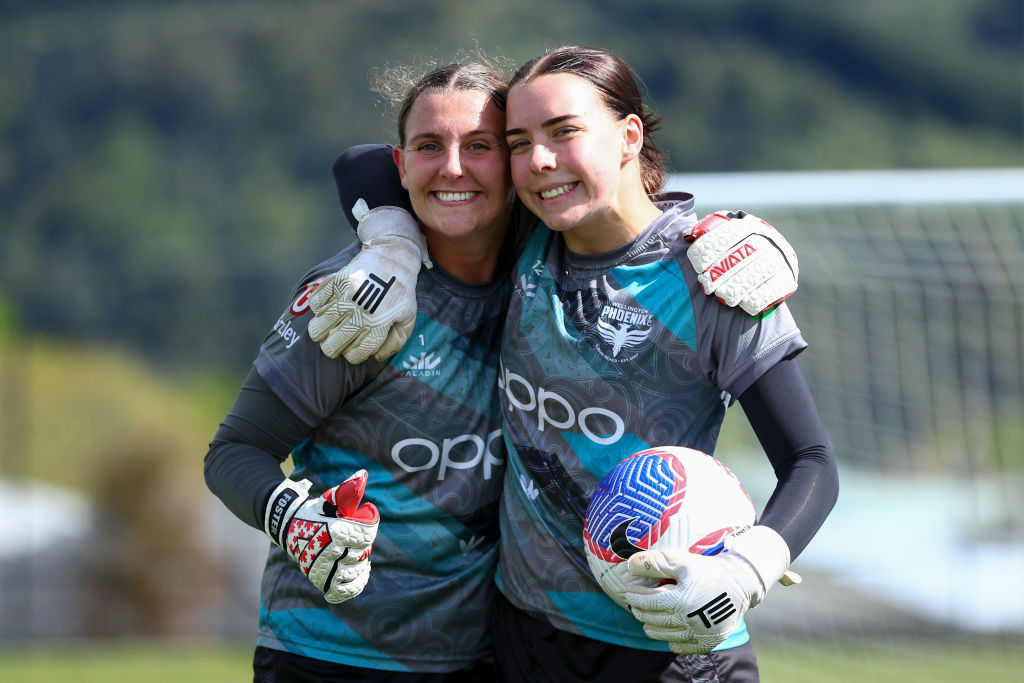
“I’ve seen a lot of headlines, that I was like the biggest comeback in football history and sport history and I think it’s true, but I just want to be known as the person who defeated the odds,” she tells KEEPUP during more than three-quarters of an hour of the rawest testimony.
“Like I’m resilient, that’s who I am, but I’m also a great footballer.”
This is why it’s so important to understand all of Foster’s story, not just the ghoulishly compelling middle section that came just as she was called into the Canadian national team and had saved a penalty in a shoot-out for Liverpool to win them a cup tie.
This is the story of how Rylee Foster was a footballer and who inconceivably has returned to being a footballer despite the injuries that should have been fatal. Even when Liverpool released her despite her rehab nearing its end, even when Celtic trialled her for five matches but declined to sign her due to a disputed medical diagnosis, she would not give up.
And now she is a Wellington Phoenix footballer and at some point will come the game when her career officially resumes. She has no doubt, and no one talking to her could harbour any doubts either.
***
Even when Foster’s father gave way and let his young daughter play football, becoming her coach, he played her in every position except goalkeeper. It’s clearly become a standing joke in a family where three generations followed Liverpool FC closely, thanks to her grandparents having emigrated from there to Canada.
But eventually an injury meant she went in goal and excelled. Everything seemed to speed up at that point; she was quickly part of Canada’s youth system, starred in the US college system for the University of West Virginia, was nominated for best young goalkeeper in the North and Central American region, and signed for an agent who approached a number of clubs – including Liverpool. Within three weeks she had signed a contract with them.
“My dad’s family is from Liverpool, so everything I knew growing up was born and bred into being a red,” she says. “Every weekend we were at (the coffee shop chain) Tim Horton’s watching the games because that was what we did.
“So to go and play for one of the best clubs and one of the biggest brands in the world was an absolute dream.

“My grandparents were massive Liverpool supporters, massive scousers through and through. So I kind of felt like I was doing something in remembrance of them and in honour of the family name.”
For the media announcement, her mum flew over. “I remember her just looking at me with tears in her eyes and we got to go back and just like relish the moment… we’re in the city and we’re in the colours and we’re in the badge.”
In a flash Foster had gone from college football to professional football. “Now your money, your contract, your livelihood depends on how you perform. Your bonuses that you want to work for are based on your results in games and getting game time.
“I think I was craving that kind of mindset, so when I stepped into a professional game, I felt like I was equipped for that kind of level of expectation.”
Over time she worked towards the first team and Foster believes she was on the cusp of becoming Liverpool’s first choice. The cruel part is that she had worked so hard she decided to cut herself a little slack. When there was club downtime she had usually been travelling with the Canadian youth teams, or volunteering for extra gym work.
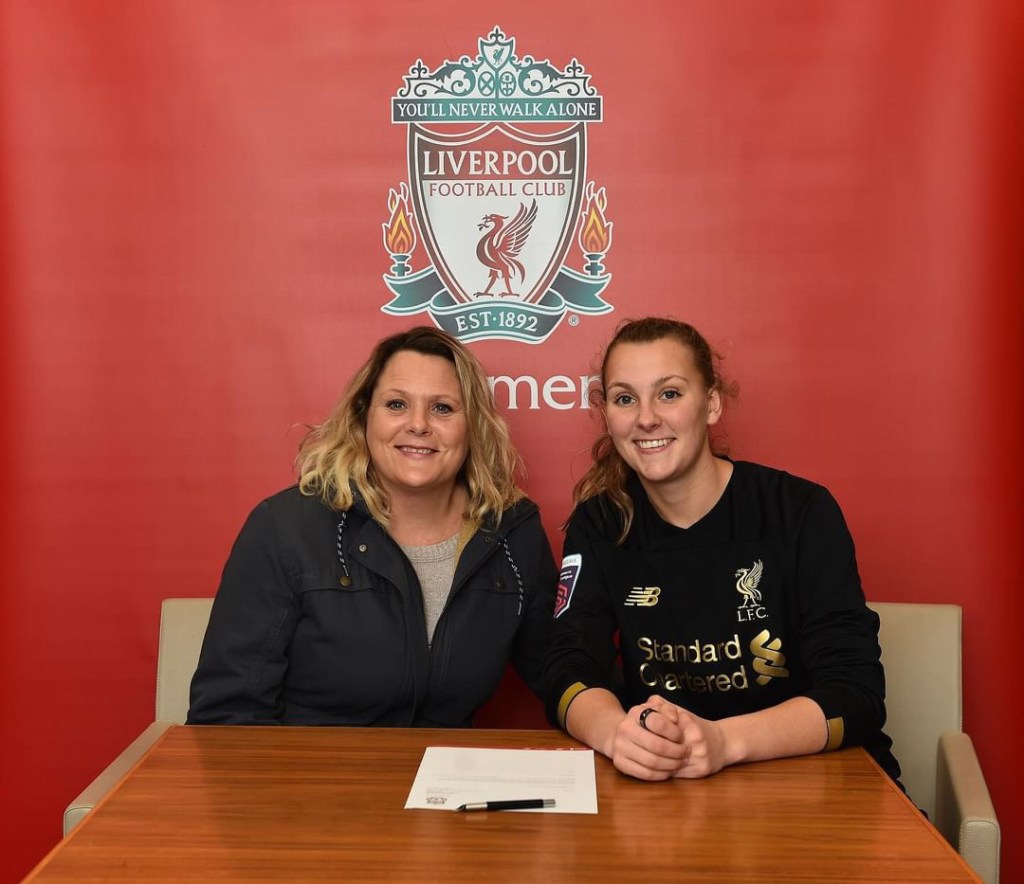
“For once, I literally was like, you know, I need to have a break. I was feeling a bit overwhelmed, I just needed a break.” As she deadpans immediately, “I got my break. A really long one.”
Foster’s boyfriend at the time was playing basketball professionally in Finland; when she went to visit, a surprise trip to see Drake play live was organised, and Foster, her boyfriend and some of his teammates filled a car to make the journey.
As they merged onto a freeway, the driver tried to overtake a car ahead of them. “What I understand is that we hit ice and hydroplaned as well,” says Foster. “We lost control of the car, eventually the car went airborne and flipped, spun around, you name it. The whole duration of the accident was 400m. So quite a big length to be doing everything you don’t want to be doing in a car.”
Eventually the vehicle halted and one of her companions found Foster in a field nearby. She jokes that she had proven that humans can’t fly but what she found out later was that the snapping of her seat belt actually saved her life. The roll of the car crushed the roof at the point where she had been sitting. That was the cheating of death #1.
***
Rushed to a local hospital, the severity of her injuries meant Foster was quickly transferred to a major medical centre in Helsinki with a severe brain bleed, multiple fractures, a ruptured knee and myriad other pieces of damage.
“I didn’t really know what was going on and there were a few out of body experiences,” she says. “I can’t tell you if it was crossing the line and going into the light or if it was just… well I don’t know what it was.

“But I remember twice being able to watch myself and one was in the ambulance when they were treating me, hooking me up to everything and putting the pads on my chest and whatnot.
“And then another one was in the hospital and they were cutting my clothes off me and it was just a really surreal feeling.”
Some 24 hours after the crash, she came to realise she had broken her neck and broken her back. Her friends, who she says all survived the crash, had remained in the local hospital and she was alone in a foreign country. She couldn’t reach her parents in Canada; her cousin, who did pick up the phone, had a panic attack. “I’m just sitting there listening to the beeping sounds of the monitors and you look around the room and everyone in there is like 60-plus and I’m wondering what’s happened, like, how did I get here?”
For days she had no feeling in her legs, but then miraculously the swelling throughout her body abated. The brain bleed stabilised. Her lungs, damaged by the initial impact, regained their CO2 capacity. “And after that, they were like, yeah, you can go get on a plane and that was it.”
This is the point that has clearly spooked Foster continually; that after she had survived such an experience, she was suddenly exposed to a different kind of danger. Discharged from hospital, she flew to Liverpool with her dad and cousin, not realising that the hospital in Helsinki had managed to miss four of the seven fractures in her neck and back.
SALLY JAMES: Learning to be a Matilda: Rare glimpse into Australia’s pathway from 20yo eyeing breakout season
MILLIE FARROW: From ‘shattered’ to ‘my best life’: How Glory striker fought OCD & major injuries to find peace
“We were taking off and landing and my cousin would undo her seatbelt and hold my shoulders to the seat and I would hold my neck so that there was no movement when we were taking off and landing,” she says.
“That’s how bizarre the scenario is. In the hospital in Finland, I was washing myself, getting dressed myself, like brushing my teeth on my own… things that we know now should never have happened.
“I got an infection mid-flight, lost feeling and everything in my arm. I was that person where the medical team comes onto the plane after we land.”
Her club, Liverpool, had arranged for her to visit a doctor, who treated her infection and sent her scans to a well-known neuroscience unit. That was Sunday; by Tuesday, as she sat down to breakfast, she received an urgent phone call summoning her to hospital immediately.
“When I got there and walked in, limping because I had hurt my knee, I said I was Rylee Foster and it was like instant panic from all the medical team,” she says.
“They ushered me quickly into this private bay and told me, don’t move. The surgeon came in and I remember him saying, you actually have seven fractures in your neck. You have the same injury that (the actor) Christopher Reeves had when he broke his neck after going off his horse (and was paralysed from the neck down).
“I know about Christopher Reeves, my aunt is a quadriplegic and she did a lot of work with him, so I was a bit confused. And he said, ‘You’re never going to play again’.
“We need to either fixate your skull to your vertebrae and you’ll lose complete mobility, or we’re going to put you in a (metal) halo. We don’t think it’s going to work, but we’re going to try it because you’re young, because you’re an athlete.”
Within two hours of arriving at the hospital, she was being drilled into to secure the screws for the halo. As she relates it, Foster points to her forehead where a jab of local anaesthetic was administered.
“There was no sedation, they did the halo procedure with me sitting up like this in a chair,” she says.
“Typically they do it when you’re laying down but they didn’t want to move me because I had four fractures in my C1 and three fractures in my C2. My spinal cord was just swaying in between them so any sudden movement, cough, sneeze, a trip, a blink of an eye, a quick turn, I was becoming paralysed if not dead.
“They put a little bit of local anesthetic on my skin here but as you know, your bones don’t take any of that and they started drilling into my head with four grips.
“It was torment. I would never wish it on my worst enemy. It’s a pressure lock system, once all four screws get to the same pressure it just locks and you can feel it. Then I just passed out. The worst pain, honestly, worst I’ve ever experienced, worse than breaking my neck.”
In addition to all the fractures, it became clear she had damaged ligaments in her knee and torn her quad muscle, so her leg was put in a cast. For months she slept sitting up because of the discomfort of gravity pulling her halo down if she lay flat. “I can sleep anywhere now so I’m thankful for that,” she smiles.
Weeks went past and regular scans showed no great healing. Surgery to fuse her neck was looking ever more likely. “Then two weeks from D-Day, essentially we find out that every single bone in my neck is healed except for one, and that one was in the stage two of healing,” she says.
“In my mind, I thought: my body can heal seven fractures that were basically impossible to heal. If I’m being told I’m meant to be a tetraplegic and I’m not, something’s meant to happen here. I’m meant to do something more than just heal and recover.”
***
As two years of recovery and then rehab began, motivation was never far away. By her count, Foster was told she should have died twice in the car, again outside it, and could have died on various points between Helsinki and Liverpool. With gusto she took on hours, days and weeks of exercises, working with Liverpool’s physios and external specialists.
But the physical battle is one thing. The knowledge of how she had survived created a different battle in her mind. “So I ask myself daily why (I survived), it’s kind of like a demon that I fight,” she says, her voice a little quieter.
“Just because there’s so many confusing factors to it. Like not many people get the opportunity to survive a simple crash. I just don’t understand why they are not me.
“I’ve come to terms with it in ways of making use of the opportunity I’ve been given. But it’s taken a lot of thought and a lot of questioning with myself.
“You talk about PTSD but the flashbacks I have are quite severe and very graphic. You should be happy to survive, but you go through ways where you’re not.”
Foster talks of the recovery phase, and then the identification phase when a victim tries to change their identity back to being an athlete again.
“Then you have hiccups in your recovery where you have setbacks and that’s even more frustrating because you’re wondering if it’s even worth it.
“So there’s been a lot of bumps to say the least and there’s been a lot of medicated moments. I won’t hide the fact that I’ve been put on antidepressants this whole process. There’s no way in hell I would make it out without them because there’s some dark moments and there’s no way to hide from that.”
One of those was the point where her contract expired at Liverpool and the club decided not to renew it.
“I gave a lot to that club,” she says. “I gave a lot of energy, time, support. At my worst moments and my lowest moments I was out there and I was supporting the team.
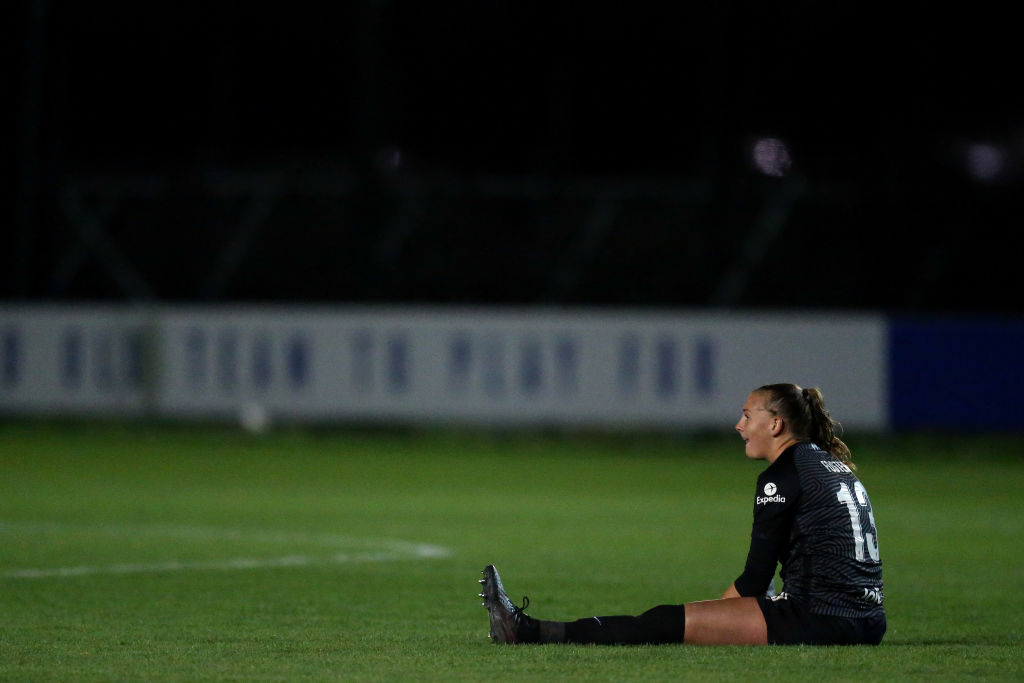
“I felt like I wasn’t given a fair chance to actually establish myself in that club. Like I showed my personality which is so important, who I am and I value that.
“But as a footballer, I felt like I couldn’t contribute the way I wanted to. That’s not to say there won’t be a time in the future. But it didn’t feel fair to say the least and I was heartbroken.”
Weeks later she won a trial at Celtic, playing five games over three weeks. She says it felt like “a game of cat and mouse” over a contract, until an MRI raised questions over her knees. Celtic, she says, decided to sign someone else; she got a second opinion that cleared her but by then it was too late.
By then she had no other options, other than the chance to keep fit at Blackburn. Out of the blue her agent showed her an email from Wellington, offering her the chance to rebuild her career in the A-League. Within a second she had decided to pursue the option of moving to the other side of the world, and her gratitude to her new club is clear.
“To me it was a no-brainer, a fresh start, a league that’s excelling, a league that’s getting heavy investment after the World Cup and players are starting to return here and make an impact,” she says.

“So I feel like it’s a great time and a great opportunity for myself to restart my career, but also do something, be better for football and help change the game in all aspects of the world.”
Just as when she was 12, Foster is setting goals again – to be successful with Phoenix, to play for Canada, to be selected for the Olympics.
But while all of that is a vital part of her journey away from the scene of a terrible car crash, the past two years have shown her that Rylee Foster will not, ultimately, be defined by the events of that October night in 2021. It’s clear that football gave her the pathway and the motivation to “defy the odds” indeed and reclaim her life.
“What had happened to me is devastating, don’t get me wrong,” she says. “I wouldn’t wish it upon anyone and no one deserves to have to go through that kind of recovery, that kind of pain, turmoil, all the above.
“But I got to go through it and it’s made me a better person. Honestly, I’ve learned so much about myself, learned so much about other people.
“It’s given me a second chance and a very open eye towards life. I get to own it. I get to own my own story.”


